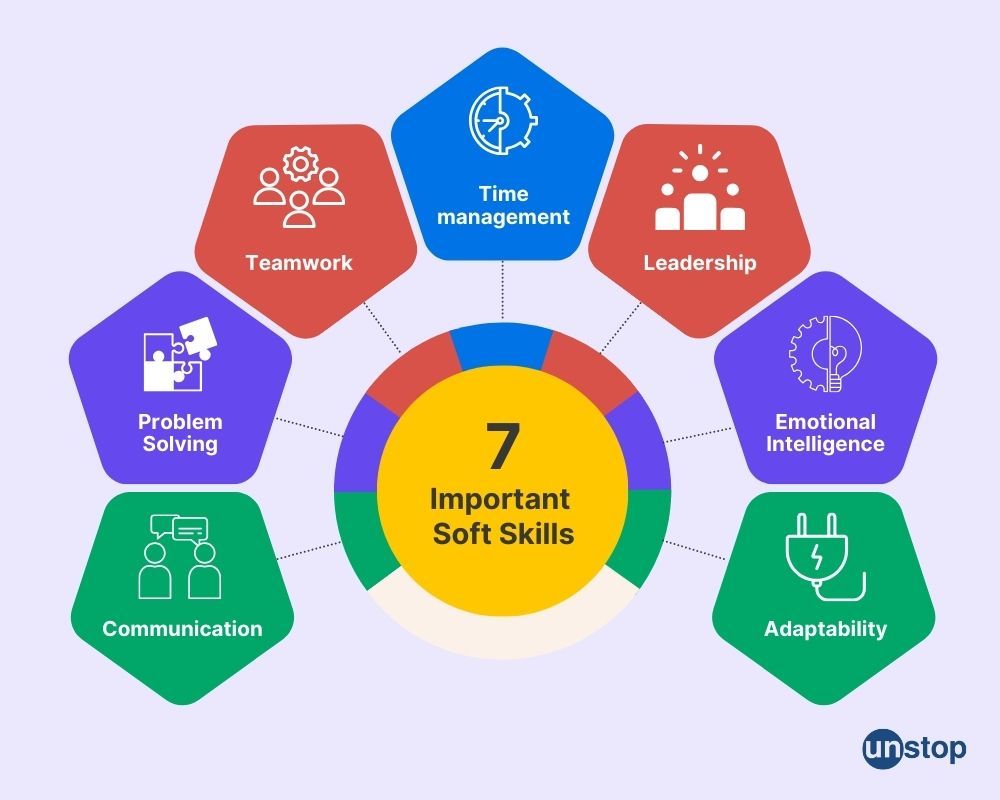Have you ever wondered why some candidates excel in their roles while others struggle, despite having similar qualifications? The answer often lies in soft skills. In the recruitment industry, soft skills are becoming increasingly vital as they directly influence workplace dynamics and overall success. This blog will explore the importance of soft skills in the recruitment industry and how they can enhance hiring practices, improve team collaboration, and drive organizational growth. By the end of this post, you'll understand why prioritizing soft skills can lead to better hiring decisions and a more effective workforce.
Understanding Soft Skills
Soft skills refer to a set of personal attributes that enable someone to interact effectively and harmoniously with other people. Unlike hard skills, which are specific, teachable abilities or knowledge sets (like coding or accounting), soft skills encompass traits such as:
- Communication: The ability to convey information clearly and effectively.
- Teamwork: Working well in group settings and collaborating with others.
- Adaptability: Adjusting to new conditions and challenges.
- Problem-solving: Finding solutions to obstacles or issues.
These skills are essential in the recruitment industry as they help create a positive work environment and foster strong relationships among team members.

The Importance of Soft Skills in Recruitment
Enhancing Team Collaboration
In today's fast-paced work environment, collaboration is key. Teams need to work together seamlessly to achieve common goals. Candidates for Saudi Arabia with strong soft skills such as communication and teamwork can significantly enhance collaboration within teams. They are more likely to engage positively with colleagues, share ideas openly, and resolve conflicts amicably. This leads to improved productivity and a more harmonious workplace.
Improving Customer Interactions
For roles that involve customer service or client relations, soft skills are crucial. Employees who possess strong interpersonal abilities can build rapport with clients, understand their needs, and provide tailored solutions. This not only enhances customer satisfaction but also fosters long-term relationships that benefit the organization. Companies that prioritize hiring for these soft skills often see higher customer retention rates.
Driving Organizational Growth
Organizations that recognize the value of soft skills tend to experience greater overall success. Employees equipped with strong soft skills can adapt to changes in the market, innovate solutions to challenges, and contribute positively to the company culture. For instance, individuals who demonstrate leadership qualities through effective communication and empathy can inspire their teams, driving motivation and performance.
Reducing Turnover Rates
Hiring candidates with strong soft skills can lead to lower turnover rates. When employees feel understood and valued within their teams, they are more likely to remain committed to the organization. This stability not only saves costs associated with hiring and training new employees but also contributes to a more experienced workforce.
How to Assess Soft Skills During Recruitment
Behavioral Interview Techniques
One effective method for assessing soft skills during recruitment is through behavioral interview techniques. These interviews focus on how candidates have handled past situations relevant to the job they are applying for. Questions might include:
- "Can you describe a time when you had to work closely with a team?"
- "How do you handle conflicts with colleagues?"
These questions help recruiters gauge a candidate's interpersonal abilities based on real-life experiences.
Role-Playing Scenarios
Another useful approach is role-playing scenarios where candidates demonstrate their soft skills in simulated situations. For example, candidates might be asked to handle a mock customer complaint or collaborate on a group task. This allows recruiters to observe how candidates communicate under pressure and work alongside others.
Incorporating Technology
With advancements in technology, many organizations are now using AI-driven tools to assess soft skills during the hiring process. These tools can analyze candidates' responses during video interviews, providing insights into their emotional intelligence and adaptability based on non-verbal cues.
Conclusion
In conclusion, prioritizing soft skills in the recruitment industry is essential for building effective teams and fostering a positive workplace culture. By enhancing collaboration, improving customer interactions, driving organizational growth, and reducing turnover rates, organizations can significantly benefit from hiring candidates who possess strong interpersonal abilities.
As you navigate your recruitment strategies, consider integrating assessments for soft skills into your hiring process. Doing so will not only enhance your team's performance but also contribute to long-term organizational success. Embrace the power of soft skills today for a brighter future in your recruitment endeavors!




























